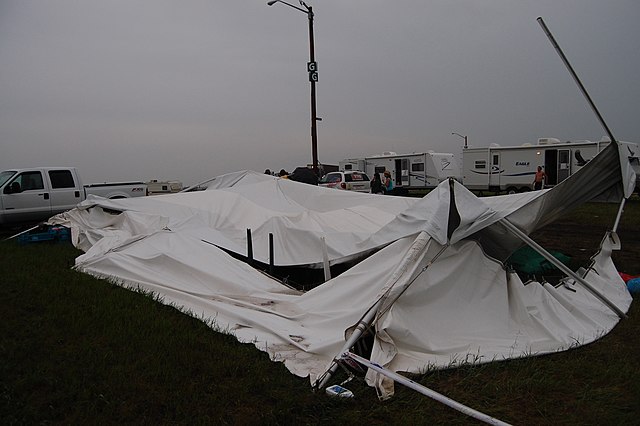A few days ago a friend of mine gave me a copy of a thesis she had directed for a young woman pursuing an MFA in non-fiction writing. My friend mentioned this student months ago, telling me that she was a Mormon writing about her life as a Mormon. She expressed concerns about the thesis, although I cant now remember what my friends concerns were. Having now read the thesis I think I understand my friends concerns. Technically the writing is fine. The problem is the account lacks consideration of the momentit is essentially non-reflective. In a word it is a shallow chronology.
It is a story of growing up in a happy Mormon family in Orem, Utah, later going to BYU, and then off east to a graduate program for a year, marriage and settling in Salt Lake City. She works hard to preserve an image that might be called the proper Mormon image (it is something akin to being politically correct, only in this case abiding by what is considered correct within the LDS culture). Her greatest upheaval is, guess what? It is about who she should marry. We hear about this cute guy she meets in high school. They become an item– she receives a few chaste kisses (she makes an issues about his infrequent chaste kisses, but without exploring her own desires). He breaks up with her and her family thinks him a goat. By the time he leaves for his mission they have reconnected and he asks her to wait for him. In spite of the fact that she had prayed about it and felt that he was not the one for her, she agrees to wait for him. Over the course of the mission, she tells us that she gradually weans him (or her) from expressing love to him in her email exchanges. He comes home and she finally tells him she only wants to be good friends. I dont mean to make a spectacle of romance and heartbreak, but if you attended BYU it is a story you heard dozens of times
She goes back east for a year of graduate studies, and discovers how much she misses the mountains. She has taken for granted the mountains and valleys that her forefathers settled, only now to discover how majestic they really are, and how much she desired to return to them. This is all somehow shaded with a religious conviction. She finishes her course work, gets married to a return missionary in the temple, and they settle in Salt Lake City. She eagerly became acquainted with the members of their new ward. She and her husband are on track following the pattern that has been laid out for them.
If life is a journey then she has written a travelogue. There isnt a single instance of a pivotal moment, or experience where she evaluates or examines her life or perspective. It is as though she has an ideal life pattern in front of her and she is doing all she can to scissor her lifes material to conform to the pattern. It is almost if she is afraid to ask questions, because they actually do surface, those makings of pivotal events. In the closing paragraphs she mentions thoughts and experiences that have the potential of making this narrative of value to her and to her readers. She comments that as wonderful as the Ward members are, she and her husband are struck that ward members seem preoccupied with the appearance of righteousness. They console themselves, she says, because they know their Church doesnt teach that kind of behavior. She also mentions that some times she feels like she is drowning in a quest for Mormon perfection. But she regroups and all is well, really.
My conclusion is that either her MFA failed her (I think at this point she could do a good job writing technical pieces such as instructions for assembling something). Or, more likely, it is another example of a built in cultural restrain to not question or examine the culture in which she grew up. It is an example of stories indigenous to the LDS culture where the only life worth living is the unexamined life, and if one should ask a question the answers have already been provided.


I think it should be pointed out that you find superficial, perfectionist people obsessed with their image, surrounded by people obsessed with theirs, who fail to seriously examine their lives in EVERY culture, and every demographic.
The only difference is that when you are in Utah, the whole thing gets blamed on the LDS Church. Anywhere else, we just call it “human nature.”
My sense of an MFA is that it’s about learning to write to entertain and inform (and learning to write generally, which is still an undertaught subject), rather than necessarily introspection or criticism. If she were in more academic program like sociology or gender studies and wrote a thesis on herself (an autoethnography), then she’d likely have to be more introspective and critical of her life. So the question is, did she successfully entertain and inform you?
this would be a problem even in a good undergraduate creative nonfiction writing course, much less an MFA program in nonfiction.
Sounds like someone on her committee read a draft and asked the obvious questions: “What about audience? Why on earth should anyone care about your narrative? How is this relevant to the general audience you’re required to posit for your work? What insight do you gain from writing about this experience, and how can you make those insights meaningful to your readers?” Those are questions that were asked of me; I asked them of the undergrads I taught. And the answers should be implicit throughout the text, not something tacked on at the end.
I’d be inclined to agree.
It’s not uncommon for fiction to consist primarily of narration, and not that much reflection, particularly in stuff written in first person. In fact, it sometimes seems weird if fictional characters start analyzing their life in great detail; that’s what limited omniscient narrators are for. But nonfiction has to have narrative and reflection. Aside from truth claims, creative nonfiction as currently written and published in the US generally must involve introspection and critical examanation of the story one is telling and why. If she didn’t manage to learn that in her MFA program, then something was wrong.
Here’s an interesting essay about the intersection of LDS “testimony” and the writing and criticism of autobiography, called “Teaching Confessions to Saints,” by a scholar who taught at BYU as a non-Mormon. I quoted this passage a time or two in my own work:
She goes on to discuss highly self-reflexive works written by her LDS undergraduate students via exercises and assignments not at all uncommon for nonfiction courses. So it really is remarkable that this person’s thesis had so little such reflexivity.
@2
I have several degrees in creative writing and have taught many courses in it. If you can’t already produce good sentences and paragraphs before you apply to MFA programs, your chances of getting into a good one should be quite slim (though someone always manages it). And the goal of MFA programs is to matriculate writers who can can publish in respectable if not prestigious literary magazines, none of which would be interested in the text Parker describes. If you want to learn to write to “entertain,” you don’t go to an MFA program.
I like Holly’s insights, and I’m going to agree with Seth that correlation does not necessarily imply causation in this case.
I think it would not be unfair, though, to classify his response as knee-jerk.